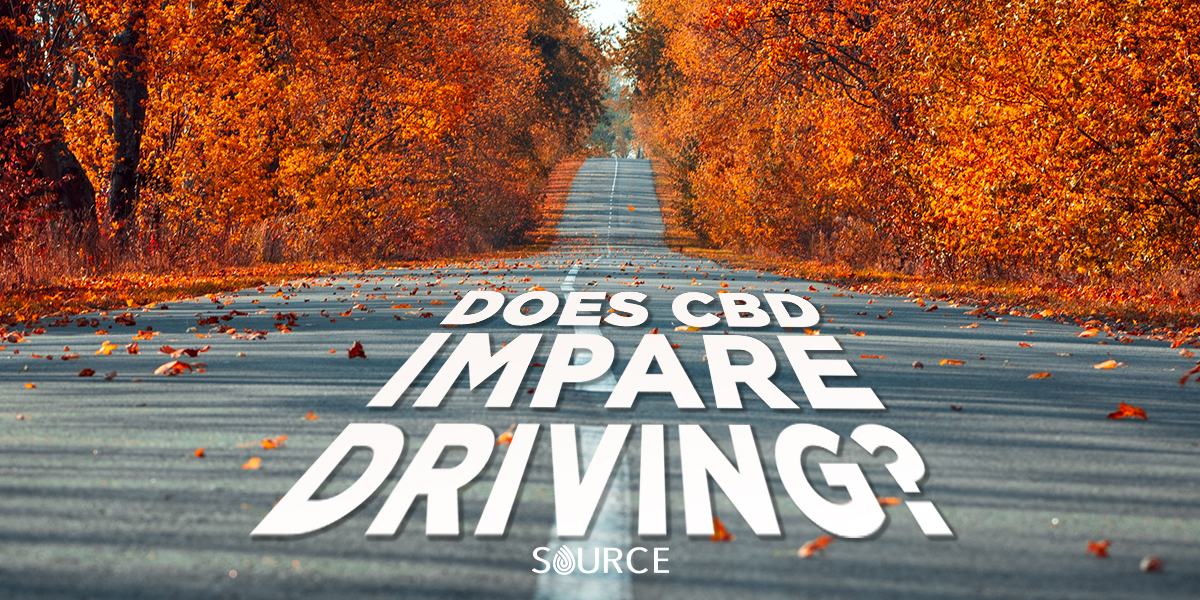CBD Oil News
CBD and Driving: Does CBD Impair Your Ability to Drive?
You probably know that THC, the psychoactive cannabinoid in cannabis, impacts your driving ability. The research abounds in that regard. In fact, many countries, particularly those where marijuana is legal, have specific laws for driving under the influence of it.
But what about CBD and driving. CBD comes from cannabis, and although it’s non-intoxicating, there may still be some concern. If you use CBD on the daily (or weekly, or even just occasionally) are you ok to drive afterwards?
Well, the research has been done.
Research on CBD and Driving
New research, funded by the University of Sydney’s Lambert Initiative and done at Maastricht University, has looked specifically at CBD and driving. This study was the first of its kind.
The goal of the study was to assess the safety of driving after using CBD and to better understand how long impairment lasts after using THC.
To measure the effects of both CBD and THC on driving ability, 26 participants were given four different types of vaporized cannabis on four different occasions, with different mixes of CBD and THC:
- mainly THC
- mainly CBD
- a combo of the 2
- a placebo containing less than 0.2 percent total cannabinoids.
Then, the participants took to the road. Under the supervision of a licensed driving instructor, each person did two 100km circuits on a stretch of highway – the first, 40 minutes after vaping, and then the second 4 hours later.
The target dose for each cannabinoid other than the placebo was 13.75 milligrams. It was a double blind study, so neither the participants nor the driving instructors knew which vape the driver had taken.
Study Results
So, what does the study tell us?
The results of those using CBD didn’t differ from those using a placebo when it came to driving ability. That’s not really surprising, but it’s great to have some research to back it up.
The results of the THC drives were also unsurprising. The first drive, the one after 40 minutes, showed short-term impairment. The researchers noted it was “modest in magnitude and similar to that seen in drivers with a 0.05%” blood alcohol concentration. After about four hours, signs of marijuana impairment faded.
Iain McGregor, academic director of the university’s Lambert Initiative for Cannabinoid Therapeutics, concluded: “The results should reassure people using CBD-only products that they are most likely safe to drive, while helping patients using THC-dominant products to understand the duration of impairment.”
Other Important Things to Note RE: CBD and Driving
Now, this study is not without its limitations. The authors note that the 13.75 mg target dose of CBD may be lower than what many people take, especially for therapeutic treatments. The same goes for THC – a higher dose may take longer than 4 hours for impairment to fade. “Driving outcomes may differ with higher CBD and THC doses and different CBD:THC ratios,” they write.
Furthermore, if you are combining your CBD with other pharmaceutical drugs, particularly those which may have a relaxing effect, you might notice some impairment. For example, if you take something for anxiety which has a sedative effect, then also take CBD, you might notice those sedative effects heightened. Be aware of changes in yourself.
As we mentioned, this is the first study of its kind, and the results are not all that surprising. However, it is still helpful to have the back up. If you’re worried about the impacts of CBD and driving, rest assured you’re likely fine.

